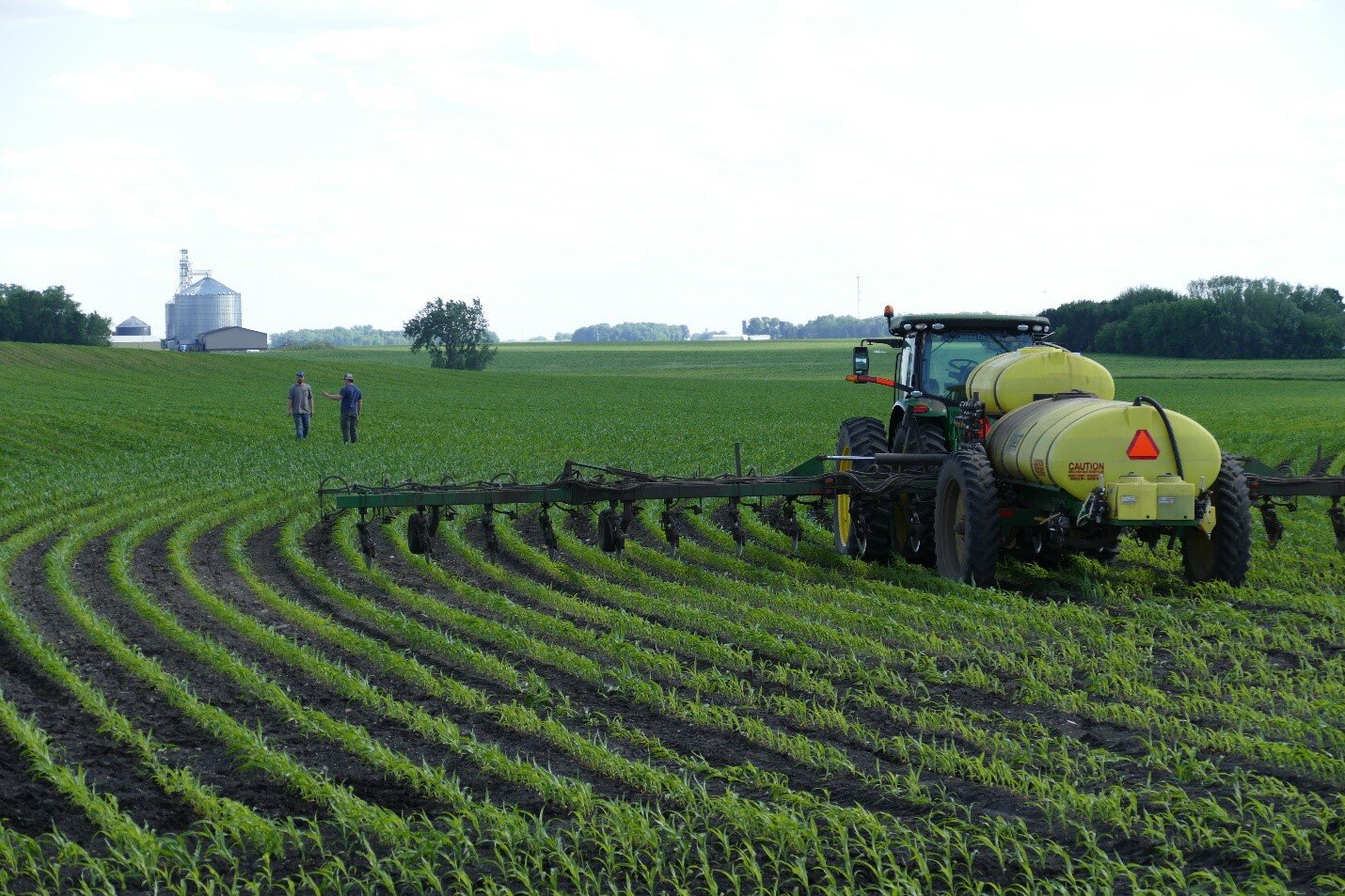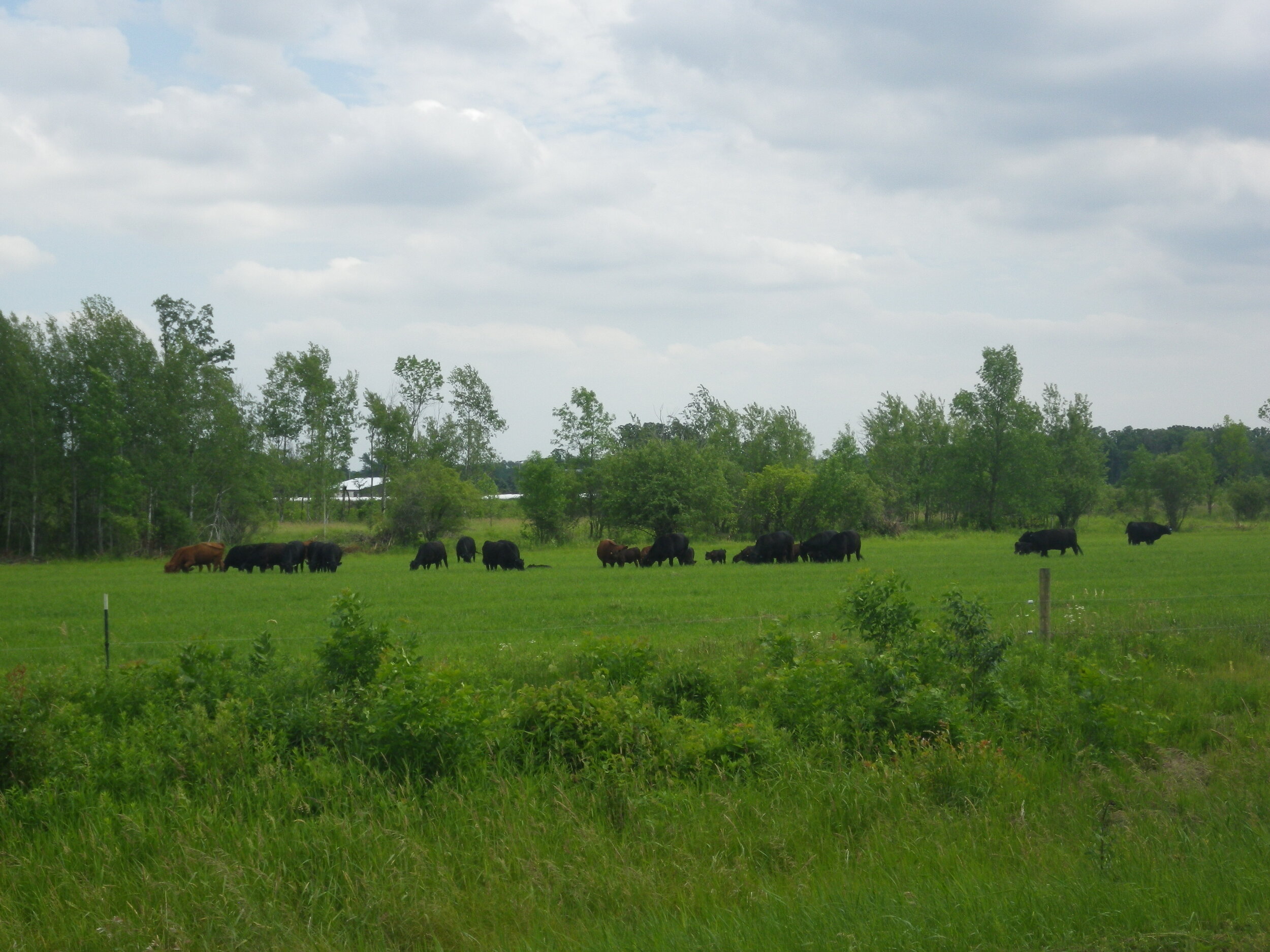
Agricultural and Rural Technical Assistance
Staff here at Benton County Soil and Water Conservation District can assist with many agricultural services such as cropland management and livestock management.
These services are listed below along with additional outside resources and information. We can provide technical guidance on many of these projects as well as assist with possible funding and cost-share.
Cropland Management
Cover Crops
Cover Crops are grasses, legumes or forbs planted to provide seasonal soil cover on cropland when the soil would otherwise be bare. Use is expanding as farmers are seeing the environmental and financial benefits of the practice.
Click below for Additional Resources and Information:
Organic Farming
Farmers and food processors that make organic claims must meet national organic standards, maintain careful records, and be certified by an USDA accredited organization.
Benton SWCD has identified an increase in the amount of interest from Benton County landowners.
Click below for Additional Resources and Information:
Nutrient Management
Nutrient management is the management of the amount, method, and timing of applications of fertilizers, manure, and other soil amendments. The nutrients that have the greatest impact on water quality are nitrogen (N) and phosphorus (P). Nutrient Management is one of the most common BMPs used on farms state-wide and can be implemented on every farm.
Click Below for Additional Resources and Information:
Pest and Weed Management
Pest management is utilizing environmentally sensitive prevention, avoidance, monitoring, and suppression strategies, to manage weeds, insects, diseases, animals and other organisms (including invasive and non-invasive species), that directly or indirectly cause damage or annoyance.
Residue Management
Residue Management with our office includes no-till, strip-till, and ridge-till. The residue management practice pays landowners an incentive payment for no more than 3 years to leave at least 30% residue on their crop fields. Residue levels are checked by SWCD or NRCS employees in the spring immediately after planting.
Landowners may not sign up to receive their 3 years of incentive payments during the first year to assist with purchasing tillage equipment that has the ability to leave 30% residue on the soil surface.
Click Below for Additional Resources and Information:
Test Plots
Nutrient Management (Ag BMP) Demonstration Plots are used to evaluate management strategies.
Nutrient management demonstration plots can be planned for anyone needing to perform nutrient management.
Incentive Bonuses of $150 per plot are offered.
Manure spreader calibrations are offered free of charge.
Livestock Management
Feedlot Systems
Feedlot runoff control is a system of structures and practices that reduce runoff and protect water bodies from nutrients and bacteria.
Benefits of a feedlot runoff control system include:
Protects water quality by preventing organic matter, phosphorus, nitrogen and pathogens in feedlot runoff from entering local surface waters or leaching into groundwater
Conserves valuable, nutrient-rich manure for use on crops
Aids compliance with state and federal feedlot regulations
Clean, dry lots enhance livestock health and are easier to maintain.
Click Below for Additional Resources and Information:
Grazing
Rotational Grazing, also called prescribed or managed grazing, is a management-intensive system of raising livestock on subdivided pastures called paddocks.
Fencing, pipeline, watering tanks, heavy use area protection, and pasture seeding are all practices that are eligible for cost-share payments through the Environmental Quality Incentives Program (EQIP). Prescribed grazing plans are completed by the SWCD and NRCS office.
Manure Management
Manure management planning ensures careful handling and use of livestock manure to obtain its full value as a crop nutrient while protecting water and air quality.
Minnesota's feedlot rule (Minn. R. part 7020.2225) and some local county ordinances require developing and following a manure management plan in certain circumstances. Additional manure management activities required for many livestock operations (and recommended for all) include keeping manure application records, testing manure for nitrogen and phosphorus content and testing soils for phosphorus.
Click Below for Additional Resources and Information:
Water Quality
Irrigation Management
High priority areas is the Little Rock Creek Groundwater recharge area.
There’s technical assistance for landowners who want to implement irrigation “catch can” tests on their fields to check the uniformity and efficiency of their irrigation systems.
We also have an Irrigation Scheduler Program. This program is designed to provide the farmer with a second opinion on in-fields soil moisture status to assist the farmer in determining if and when to irrigate.
Click Below for Additional Resources and Information:
Well Sealings
Well sealing is permanently closing a well that is no longer used or is deemed unsafe. State law requires abandoned wells in Minnesota to be sealed. Well sealing involves clearing debris from the well and filling it with grout. This must be done by a licensed contractor.
An unused well can act as a drain, allowing surface runoff, polluted water and improperly disposed-of solid or other waste to contaminate groundwater. Therefore, sealing abandoned wells protects groundwater quality.
Click Below for Additional Resources and Information:











